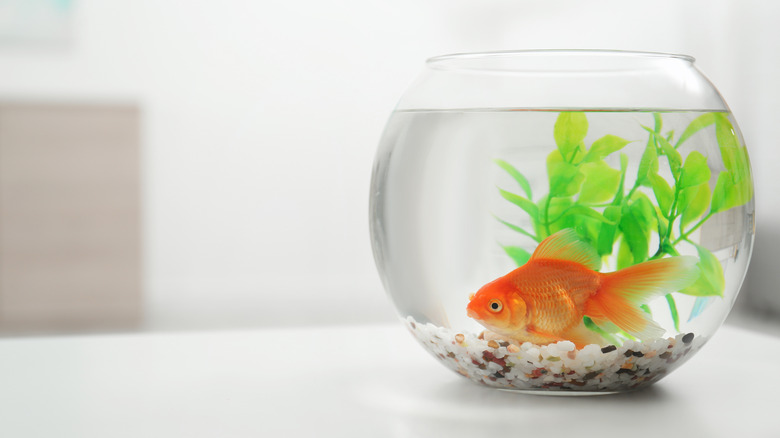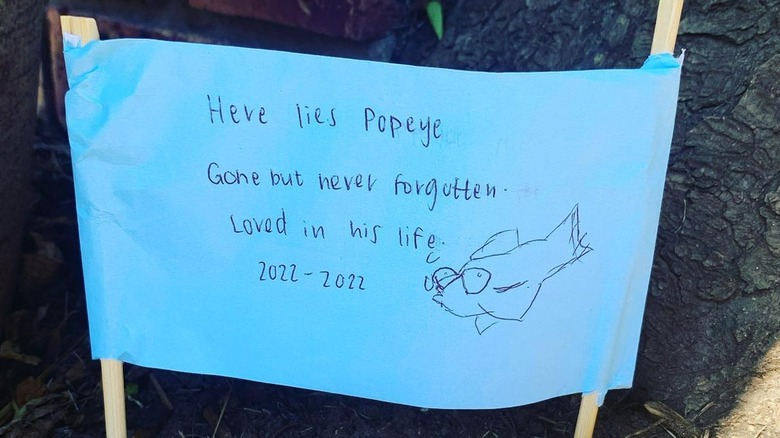Why You Should Avoid Flushing Dead Fish Down The Toilet At All Costs
You might think giving your beloved goldfish a watery burial is a considerate and suitable send-off, but you'd be surprised. This practice has some pretty serious consequences for your septic system and the environment. That's because most sewage treatment plants aren't set up to handle fishy remains, which more often than not end up polluting our rivers and oceans. This, in turn, can introduce harmful stuff like chemicals and nasty germs into natural water habitats and has the potential to do some serious harm to the lives of other aquatic creatures. It can also throw the local ecosystem out of whack from the decomposing fish, causing algae blooms that suck up oxygen in the water and suffocate underwater dwellers.
Remember that the plecostomus is not one of the Three P's that make up flushable-safe items. Your deceased fish could have been sick and potentially carrying diseases or parasites that led to its unfortunate demise. Without thoroughly cleaning every part of your bathroom, there might still be lingering germs and bacteria from the fish's remains, which could make you sick. Moreover, your septic system isn't designed for fish remains, and if it causes damage or blockages, you're on the hook for repairs.
Treat it like it was more than just a fish
Instead of flushing, you might want to consider giving your deceased fish a proper farewell by burying it in your garden and using it as compost. This way, you not only avoid the eco-issues linked to flushing it but also let the fish return to the earth as nature intended. Grab a small shovel or trowel, find a good spot in your garden, dig a hole deep enough to keep nosy critters away, place the fish in, share a few kind words, and cover it up with dirt.
As time goes by, the fish will naturally break down, giving the soil a nice big nutrient boost. If you can't dig up a patch of garden due to space constraints or lack of outdoor access, consider giving your fish a plant pot burial as an alternative. If you're not into burials, then putting it in a biodegradable bag and in the garbage is another option. Lastly, check in with your local vet clinic — they might have other, different, and more eco-friendlier methods for saying goodbye to your fishy friend.

